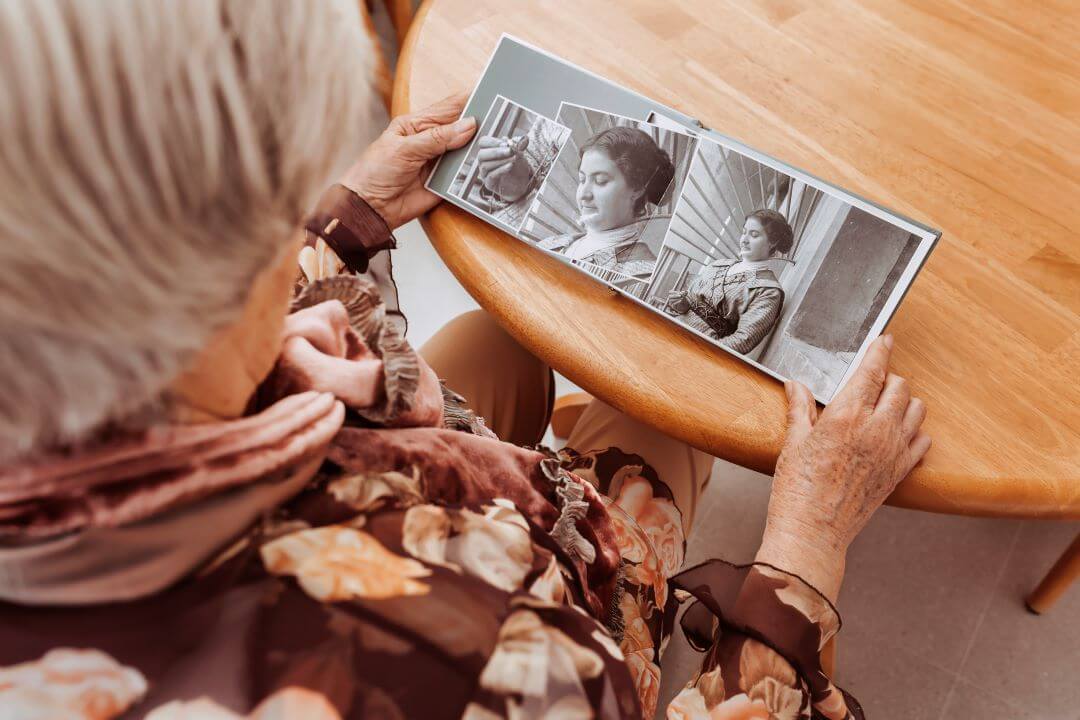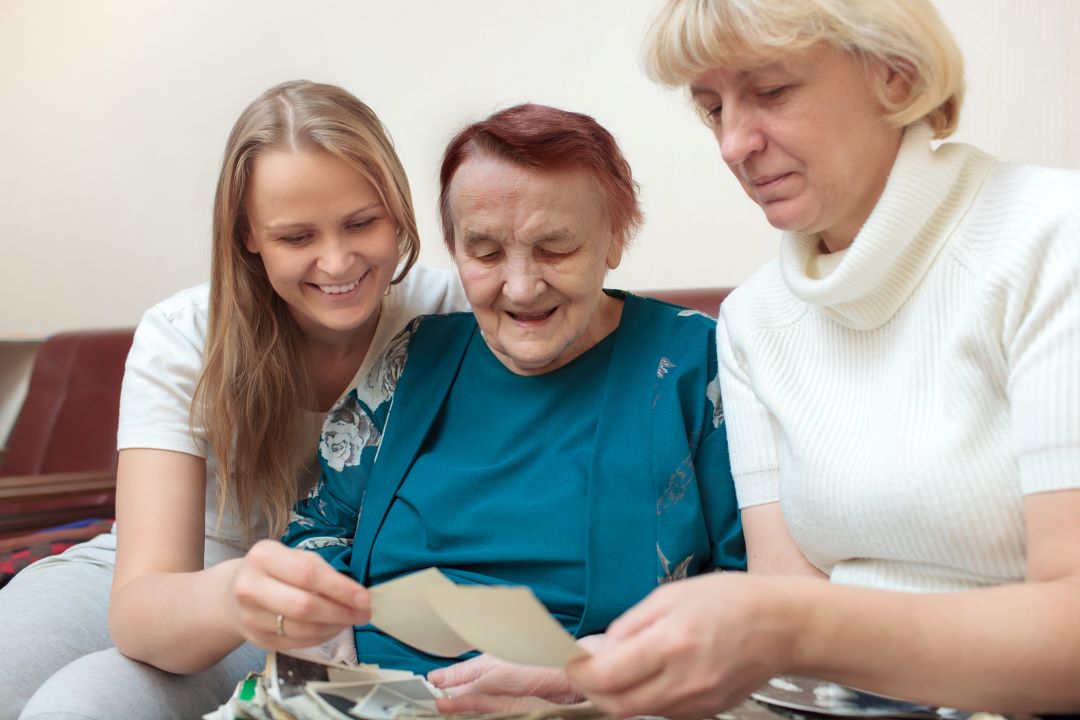
My uncle loved telling his military stories. He served in the Navy during WWII, and even though it was a scary and dangerous time, he often said his time in the Navy was his favorite. Maybe it was the camaraderie, the adventure, or the pride he took in his role. Over the years, I’ve found many veterans with dementia feel the same way about their memories from service.
Every time he came over, he’d tell his stories, and even though I’d heard them hundreds of times, I’d listen and laugh as he described the time he accidentally backed a jeep off a ship into the ocean. The rest of the family would often walk away or tell him they’d already heard the story, but I knew he needed to share it again. Every time he shared it, his eyes lit up, and we connected.
What is Dementia Reminiscing?
Reminiscing is simply talking about memories that bring joy. For my uncle, this meant talking about his Navy days. For others with dementia, reminiscing might mean sharing about their childhood, young adult years, or time raising their family. Talking about past jobs or travels is another common theme, especially with old friends or interested family members.

Why is Reminiscing so important for those with Dementia?
As dementia progresses, people often stop starting conversations. Reminiscing gives them a way to engage, which can be challenging with present-day topics due to memory loss.
Discussing memories is often easier than current events, which can make them feel more comfortable and less stressed. Reminiscing gives them confidence, helping them feel capable and connected.

types of Dementia Reminiscing
- Visual: Old photos, family movies, or newspaper clippings can bring back memories.
- Aural: Listening to music, especially favorite songs, is a powerful trigger.
- Taste: Familiar foods, like a favorite dessert, can bring comfort and joy.
- Tactile: Touching familiar objects, like a favorite blanket or a piece of clothing, can prompt memories.
- Olfactory: Smells are incredibly powerful; baking cookies or a familiar perfume can evoke warm memories.

benefits of Dementia Reminiscing
When you reminisce with your loved one, it helps them feel connected to you. Daily caregiving can overshadow the personal relationship, but reminiscing rekindles that primary bond—whether you’re a spouse, child, sibling, or friend.
This connection not only strengthens your bond but helps them feel appreciated and understood. It may even give them a sense of purpose, feeling like they’re contributing to family life by sharing their experiences.
Rekindling your primary relationship instead of the caregiver one, will lead to more joy in your loved ones life.
Dementia reminiscing questions?
Here’s a list of questions to spark meaningful memories. Pick the ones that resonate most, and remember, the goal is to help them feel at ease and appreciated by discussing their life.
- What was your favorite place to visit?
- Which invention amazed you the most?
- Who was your favorite movie star growing up?
- What job did you enjoy the most?
- What do you remember about your parents or grandparents?
- How did you meet your spouse?
- What advice would you give to others?
- What is a day you’ll never forget?
- Did you have a hobby you loved?
- What was your favorite thing to do as a child?
If you need ideas for specific questions or approaches, you’ll find a list of 40 questions to help with reminiscing activities HERE.
Starting the Conversation
Sometimes, it’s easiest to start with a story from your life and then gently guide the conversation back to them. If you come across a memory that upsets them, acknowledge it and carefully shift to a happier one.
In the end, reminiscing is about connecting. Many family members who don’t see their loved ones daily can feel unsure about how to interact with them. By finding common ground or just listening—whether it’s the first or thousandth time you’ve heard the story—you show them you care, creating moments of joy and connection.








